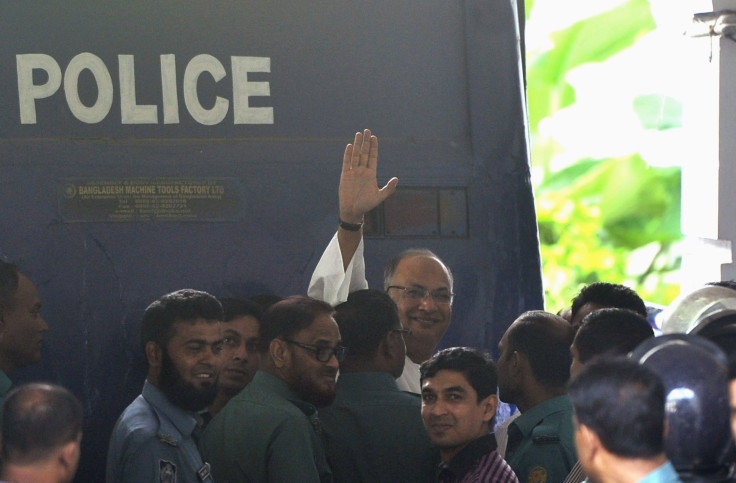Bangladeshi Supreme Court Rejects Appeals Of 2 Senior Leaders Convicted Of War Crimes, Upholds Death Sentence

Bangladesh’s Supreme Court Wednesday rejected appeals of two senior opposition leaders convicted of war crimes during the country’s 1971 war of independence against Pakistan. The court also upheld the death sentences given to the two leaders.
Salahuddin Quader Chowdhury of the Bangladesh Nationalist Party (BNP) and Ali Ahsan Mohammad Mujahid of Jamaat-e-Islami were convicted in 2013 by a war crimes tribunal on charges related to rape, torture and genocide.
"There are no legal hurdles to execute the war criminals now," Attorney General Mahbubey Alam said, according to Indo-Asian News Service agency.
Authorities stepped up security in capital Dhaka and other parts of the country after the apex court's announcement, according to local media. Jamaat-e-Islami called a shutdown Thursday to protest the court’s decision, according to the Associated Press. The Bangladesh Telecommunication Regulatory Authority said in a statement that it blocked social media sites including Facebook, Viber and WhatsApp indefinitely to cease any propaganda that might lead to violence in the country, the AP reported.
Chowdhury and Mujahid can seek presidential mercy. "It is up to them whether they want to seek mercy or not," defense counsel Khandaker Mahbub Hossain said, according to Reuters.
In October 2013, the country's International Crimes Tribunal sentenced the 66-year-old BNP leader to death for nine of 23 charges, including four counts of genocide. Chowdhury was found guilty of killing 200 civilians, mostly Hindus, in Chittagong. At the time, his party maintained that the trial was politically motivated. It is estimated that nearly 3 million people were killed in the nine-month Bangladesh Liberation War that ended in December 1971. Over 15 people, mostly Jamaat-e-Islami leaders, were convicted of war crimes by two separate tribunals set up by Prime Minister Sheikh Hasina in 2010.
© Copyright IBTimes 2025. All rights reserved.






















